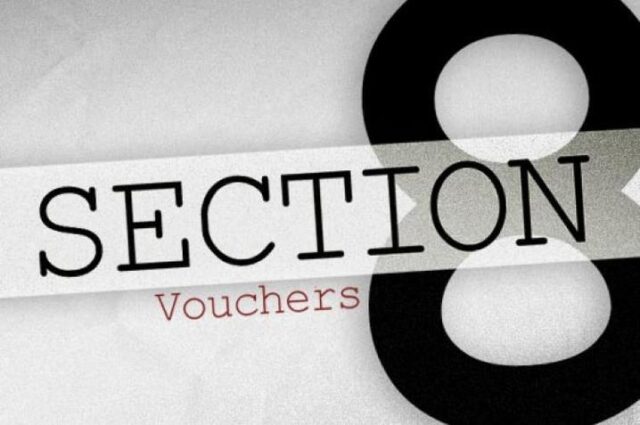
You’ve heard the rumors about Section 8 assistance, haven’t you? Myths about unruly tenants and unreliable rent abound. But what’s the real story? Whether you’re a landlord on the fence or a tenant feeling the stigma, here’s the truth behind Section 8, from rent prices to landlord obligations. Get ready to have your perspective realigned.
Understanding program eligibility
You’ll need to understand that the Housing Choice Voucher Program, often referred to as Section 8, is designed specifically for low-income families. This program aims to assist low-income families in securing affordable housing, smashing misconceptions about Section 8 being a handout rather than a hand-up.
Program eligibility is based on the total annual gross income and family size. It’s crucial to grasp that only some qualify for this assistance, and strict Section 8 regulations are in place to determine eligibility. The goal here isn’t to provide free housing but to ensure everyone can access safe, decent, and reasonably priced homes.
Flexibility in housing choices

It’s important to debunk another common misconception: the belief that voucher recipients have limited housing choices. In reality, with a housing choice voucher, you enjoy flexibility in your housing choices. You’re not restricted to specific neighborhoods or building types. You’re good to go as long as the landlords accept Section 8 and the housing meets program standards.
This flexibility allows you to choose housing that suits your family’s needs and lifestyle, breaking down misconceptions. However, remember that landlords have the right to screen tenants, so ensure you present yourself as a reliable and responsible tenant to secure your chosen accommodation.
Responsibilities of voucher tenants
Regarding your responsibilities as a voucher tenant, it’s essential to understand that you must adhere to certain rules and guidelines. As responsible renters, you must pay your portion of rent on time, maintain sanitary housing, and report any income or family composition changes.
A common misconception is that voucher holders are subject to different screening processes than non-voucher tenants. However, this isn’t true. The screening process is the same for all tenants, ensuring equal treatment and fairness. It’s crucial to debunk such common misconceptions about responsibilities to foster trust and harmony between landlords and voucher tenants.
Obligations of landlords
As a landlord, there are several crucial obligations you’re expected to fulfill when renting to Section 8 tenants. One common misconception is that Section 8 assistance absolves you of your typical landlord duties. This scenario is far from the truth.
You’re still required to provide safe, clean conditions for your tenants. Regular maintenance, repair work, and inspections of all your units are part of your obligations. You’re also obliged to respect your tenant’s privacy rights and to treat them with the same fairness and respect as non-Section 8 renters.
Program funding by HUD

Despite what you might’ve heard, the Department of Housing and Urban Development (HUD) is responsible for covering the cost of the Section 8 program, not the landlords or tenants. HUD allocates funds to local public housing agencies (PHAs), who then distribute them to eligible tenants. This funding assists the tenants in paying a portion of their rent, thus easing their financial burden.
The landlords receive a consistent monthly payment, a portion of which comes from the tenant and the remainder from the PHA. So, don’t let the misconceptions fool you. HUD plays a key role in the funding and successful operation of the Section 8 assistance program.
Rent prices
You might think landlords can’t charge full rent prices to Section 8 tenants, but that’s a common misconception. Landlords can, indeed, request market rates under Section 8 assistance. However, the rent prices are subject to approval by the local housing authority.
This authorization ensures that tenants aren’t overcharged and that the rent is reasonable for the property’s condition and location. It is critical to understand that Section 8 tenants have the same rights and obligations as other tenants in the private market.
Eviction process
Contrary to some beliefs, Section 8 tenants can be evicted for lease violations like any other tenant. Myths about Section 8 often lead people to believe that the eviction process for tenants under this program is different.
However, whether or not a tenant receives Section 8 assistance keeps the eviction protocol the same. If a tenant breaks the lease agreement or fails to pay rent, you’re within your rights to start the eviction process. Remembering this principle is crucial, as it ensures fairness and equal treatment for all.
The main difference is that the local housing authority must also be notified before evicting Section 8 bad tenants. Overall, regardless of the assistance they receive, all tenants must abide by the terms of their lease.
Renting a voucher

Many landlords don’t realize there’s a significant advantage to renting to voucher tenants, especially considering the guaranteed monthly income. These housing participants bring a level of financial stability to your rental business that’s often overlooked due to widespread misconceptions.
For instance, the assumption that voucher tenants are troublesome or unreliable is false. Like any other tenant, they’re bound by the terms of their lease, and failing to abide by them can lead to eviction. In fact, these tenants often stay longer, reducing your turnover rates.
Housing quality misconceptions
Although you may be concerned about housing quality due to common misconceptions, the Section 8 program requires properties to meet certain standards. It’s often thought that Section 8 assistance only benefits low-income families, but in reality, it provides a steady income to landlords, too. Contrary to popular belief, Section 8 doesn’t result in lower neighborhood property values either.
Last words
When it comes to Section 8 assistance, it’s not all damaged property and unpaid rent. Understanding the Section 8 ins and outs, you’ll find it brings significant benefits to both landlords and tenants. By debunking these misconceptions, you’re not just opening your doors to reliable rent payments but also playing a pivotal role in providing affordable housing. Remember, knowledge is the key to making informed, beneficial decisions









